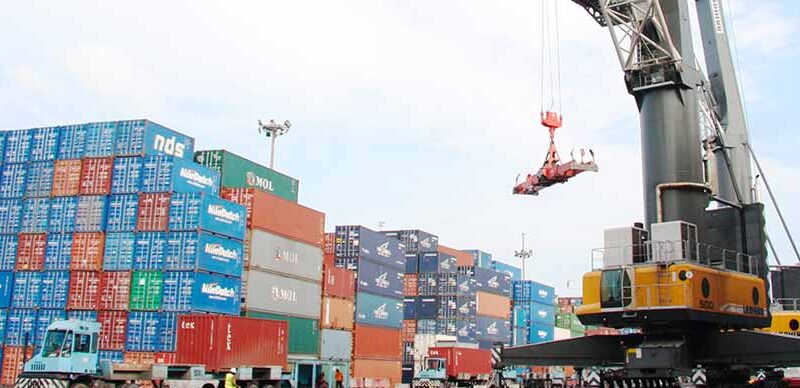Nigeria’s imported food inflation surged to 36.38% in June 2024, up from 34.83% in the previous month, marking a 1.55 percentage point increase. The Consumer Price Index (CPI) data from the National Bureau of Statistics (NBS) for June 2024 indicates that the average price index for imported food rose to 806.0 in June 2024, compared to 591.0 in June 2023.
The significant increase in imported food inflation from 19.10% in June 2023 can be attributed to the weakening of the naira following the Central Bank of Nigeria (CBN) ‘s unification of all segments of the forex exchange market in June 2023. This unification, which aimed at creating a more transparent and efficient foreign exchange market, resulted in a steep depreciation of the naira.
What the Data Shows
NBS data on imported food inflation from January to June 2024 reveals a consistent and concerning trend of rising costs:
- January 2024: Imported food index high with an inflation rate of 26.29%.
- February 2024: Inflation rate increased to 29.81%, a 3.52 percentage point jump.
- March 2024: Inflation rate climbed to 32.89%, a 3.08 percentage point increase.
- April 2024: Inflation rate increased to 34.01%, growing by 1.12 percentage points.
- May 2024: Inflation rate reached 34.83%, an increase of 0.82 percentage points.
- June 2024: Inflation rate hit 36.38%, marking a 1.55 percentage point increase.
While the overall trend is upward, the rate of inflation increase showed signs of gradual deceleration from March to May before picking up again in June.
Imported Food Inflation Exceeds Headline Inflation
Nigeria’s overall inflation rate in June 2024 rose to 34.19%, up from 33.95% in May 2024. The headline inflation rate in June 2024 was 11.40 percentage points higher compared to June 2023, rising from 22.79%. On a month-on-month basis, the headline inflation rate in June 2024 was 2.31%, an increase of 0.17 percentage points from May 2024’s rate of 2.14%.
This indicates that the average price level increased faster in June 2024 than May 2024. With headline inflation at 34.19% in June 2024, the imported food inflation rate of 36.38% is higher. However, general food inflation was even higher at 40.87% for the same period this year.
The food inflation rate for June 2024 was 40.87% year-on-year compared to 40.66% in May 2024, 15.62 percentage points higher than the 25.25% recorded in June 2023. On a month-on-month basis, the food inflation rate in June 2024 was 2.55%, reflecting a 0.26 percentage point increase from May 2024’s rate of 2.28%. Increased prices of items such as groundnut and palm oil drove the month-on-month rise in food inflation.
What You Should Know
In June 2024, Nigeria’s exchange rate closed at N1,503.3/$1, marking a 1.3% monthly depreciation. The naira experienced prolonged volatility, crashing by 40% between December 2023 and June 2024, closing 2023 at N907.11/$1 and the first half of 2024 at N1,503/$1. The Nigeria Customs Service (NCS) exchange rate for import duties collection rose to N1,508/$1 in early July, the highest in the past three months, further increasing the local currency cost of imported goods.
The Trade Union Congress (TUC) urged the Federal Government to import essential food items to combat rising food prices. The Minister of Information, Mohammed Idris, disclosed government plans to import food temporarily. However, President Bola Tinubu opposed this strategy, advocating for self-sufficiency and emphasizing domestic food production.
The International Monetary Fund (IMF) highlighted the food crisis in Nigeria and sub-Saharan Africa due to reliance on imported foods. To curb rising food inflation, the Federal Government approved a 150-day duty-free window for importing maize, husked brown rice, and wheat. However, the President of the African Development Bank (AfDB), Dr. Akinwunmi Adesina, criticized the importation plan, arguing it could undermine local agricultural policies.
The National President of the All Farmers Association of Nigeria (AFAN), Arc. Kabir Ibrahim, warned that duty-free food imports could erode local production gains. He called on the government to invest in subsidies for inputs like machinery, fertilizers, and chemicals to achieve a sustainable food system.











